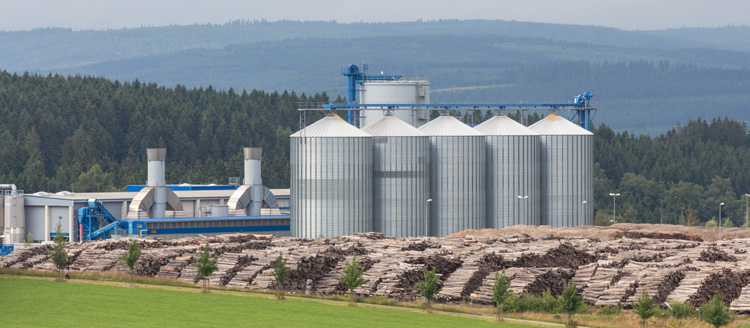The sweet spot where expertise transfers
A CLIENT IN THE RENEWABLE ENERGY SECTOR FEELS THE BENEFITS OF HARD-WON LESSONS FROM THE OFFSHORE UPSTREAM WORLD
Debates rage within the renewable energy sector. Some trumpet the circular economy, others economies of scale. Another question is how green an energy solution really is.
The common denominator is that they are all fossil free. This can lead to the impression that the renewable energy sector does not want to be tainted by any involvement of its ‘dirty’ fossil-heavy older cousin. Like most people, we worry about the planet. But we are proud of the positive effect we’ve had on the upstream energy sector. As project risk experts, we are interested in the uniqueness and complexity of the undertaking. Our mission is to protect the profitability of projects through project risk maturity.
Given this sector’s perception and our own track record from complex upstream oil and gas projects, we were pleasantly surprised when, in 2018, we found we had been referred to a new client within the biomass and biogas sector. Our client, a large integrated services provider (integrator) had found themselves suffering difficulties, mainly from the environment within which they found themselves executing a waste-to-energy project in Scandinavia.
The perils of scaling up
Our client’s track record on delivering its project was good. They had been involved in biomass and biogas for a number of years with many state-of-the-art technologies in their manufacturing base. However, the scale of these types of projects is increasing and, with it, the project’s structure and environment. The arrival of large engineering, procurement and construction (EPC) companies into the mix has introduced a different relationship context. Whereas before they were a trusted provider directly serving the project’s owner organization, our client was now a specialist subcontractor.
The involvement of EPCs is driven by a need within the project owners to reduce their overall risk by seeking turnkey and fixed-price solutions. The intent is to pass off large chunks of risks onto the EPC through contractual arrangements and mechanisms. This approach has become common practice across the global oil and gas industry for large projects.
Our client was under pressure to comply with the high volume of information requests emanating from their EPC customer for how they intended to approach the commissioning of their plant, equipment and automation systems. They were also worried that an ulterior motive might be in play, as the EPC was suffering from delays in supplying utility services to our client’s facilities and might have been building a case for some hefty claims.
“In short, the management team needed to be more certain of their outcomes.”
It’s the interfaces, stupid
Our client needed help to understand the unique context and environment within which it found itself, and to identify the limitations of its existing organization within the project’s context. It needed a joined-up commissioning strategy that would ensure they met their contractual obligations and protect them as much as possible from a ‘claims war’ with the EPC. In short, the management team needed to be more certain of their outcomes.
Their talented team of commissioning technicians knew the equipment inside out, but relations were tricky. They also needed knowledge of large and complex project commissioning as well as leadership on the ground. So we mobilized one of our commissioning specialists to site to assist with framing and mapping out a route plan. Through peer assist, we strengthened communication between our clients and their customers’ site-based people. We also instigated safeguarding measures and a more formal approach to their contractual dealings.
Commissioning progressed in a flexible manner to accommodate the delay and disruption issues experienced by the EPC company. This project is currently suspended due to Covid-19 lockdown restrictions. Our tenure to date has been two years. After realizing the benefits of our project risk maturity approach, the same client came to us for other biomass plant construction projects and we introduced our Peak PRM into their project management organization.
Collaborating to protect value
Our client required rapid assistance to avoid the pitfalls and deal with the rigours of an EPC-controlled project environment. Their approach to commissioning needed alignment with their customer’s plans and schedules, and a potentially fractious situation was in need of defusing. All this was achieved collaboratively with our client, with our PRIMA approach at its core. Not only was the integrity of our client’s commissioning systems enhanced but their interests were safeguarded. In terms of project profitability, around €9m of value erosion has been avoided allowing our client to maintain its margins on the project.
“Around €9m of value erosion has been avoided allowing our client to maintain its margins on the project.”
Doubling down on this initial improvement, our client asked us to undertake construction-phase costrisk workshops and analysis. The resulting insights and mapped solutions identified previously unforeseen areas of increased vulnerability in their approach. The mitigation and management of the associated risks have the potential to deliver tens of millions of annual savings worldwide.



